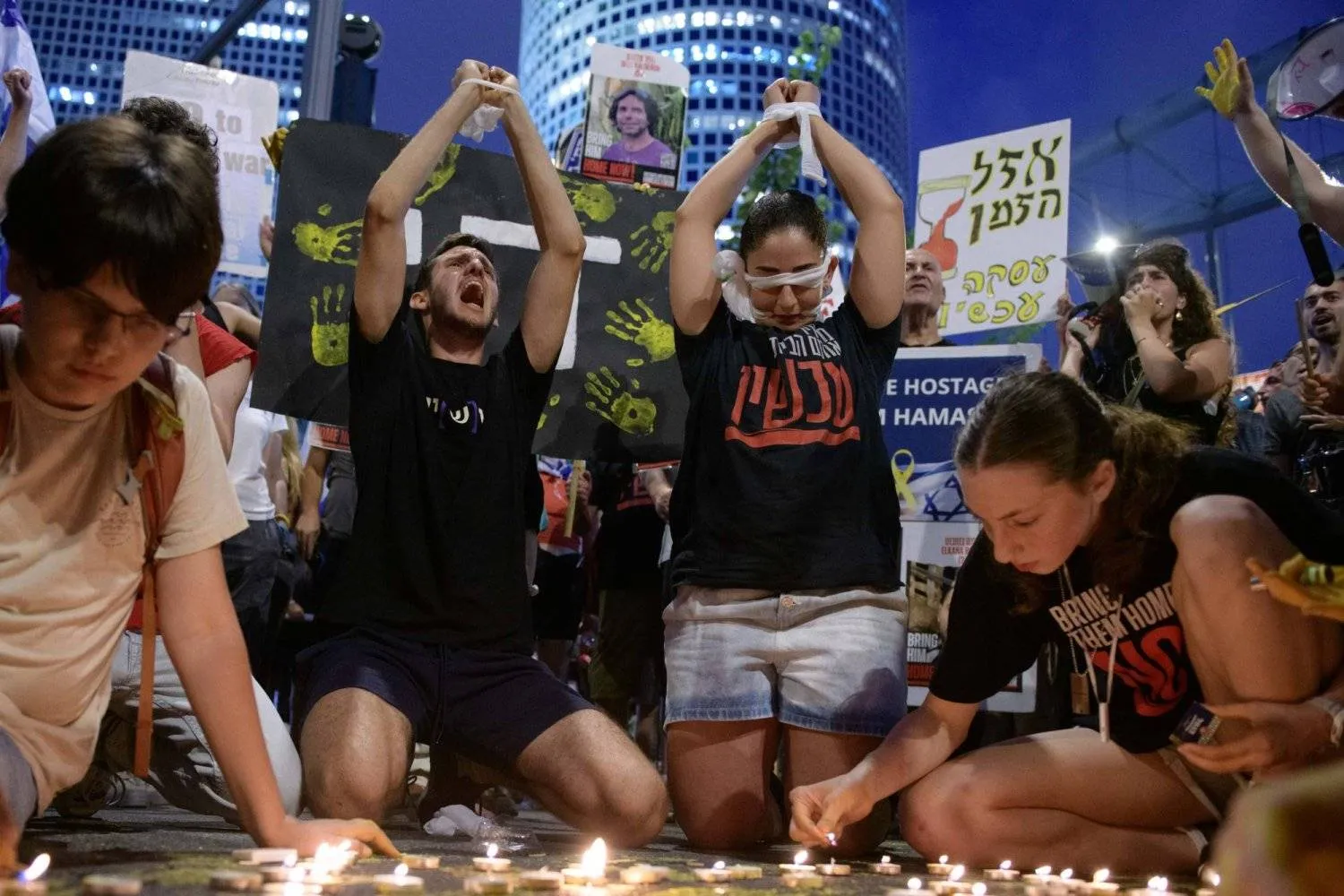Amid Israeli attempts to isolate the Gaza Strip, take advantage of the war in Lebanon and threaten to extend it to Iran, a majority of Israelis still believe that there is no chance of victory over Hamas.
A poll conducted by the Israeli public broadcaster KAN revealed that just 27% of Israelis believe their country has “won the war in Gaza,” while 35% think it has “lost.” The remainder, or 38% of the Israelis, said they were uncertain about their answer.
An in-depth analysis of the poll also showed that when asked about the outcome Israel achieved in the war in Gaza, uncertainty reigns among supporters of the ruling coalition parties led by Benjamin Netanyahu, who speaks of a complete and overwhelming victory.
Among coalition voters, 47% felt Israel had won.
Meanwhile 48% of opposition voters believed the country had lost.
According to the new poll, 14% of Israeli settlers said they are willing to live in settlements near the border with the Gaza Strip after the end of the war. In return, some 86% of Israeli settlers expressed their unwillingness to live in those settlements.
Additionally, 12% of Israelis reported losing a family member or close friend during the Oct. 7 Hamas attack and the war that Israel waged in response to the attack. Also, 36% said they know someone who died, indicating that 48% are personally connected to a casualty of the war.
Last week, a new poll by Israeli newspaper Maariv showed that a third of Israelis are considering emigrating because of the war.
The poll showed that 35% of respondents said they considered emigrating from Israel, including 24% who considered permanent emigration and 11% who considered moving away temporarily.
The poll also showed that 47% of the respondents said they “very much want” their children to live in Israel and 26% only “want” their children to live there while 21% affirmed that they do not want their children to live in Israel. Six percent of the respondents said they did not wish to answer the question.
Of those polled, the elderly, religious and ultra-Orthodox community were the most happy living in Israel. In return, Israelis aged 30-44, young couples, and voters of opposition parties were found to be most dissatisfied with living in Israel.
The polls showed that 66% of the respondents believe that Israel is a good country to live in, compared to 33% who think it is not. Also, 49% said they felt personally secure, 23% did not, and 26% said their personal security status was average.









